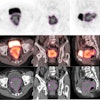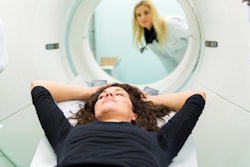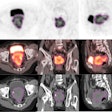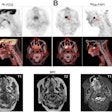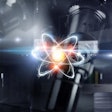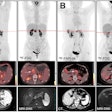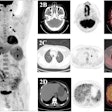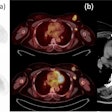
CHICAGO - Researchers developed an artificial intelligence (AI) algorithm that was able to predict which patients were likely to experience side effects after radiation therapy for head and neck cancer, according to a study presented Monday at the American Society for Radiation Oncology (ASTRO) meeting.
The machine-learning algorithm was able to successfully predict which patients would experience the likelihood of losing weight or need the placement of a feeding tube. But the algorithm didn't work as well in predicting a third side effect, unplanned hospitalization.
Radiation therapy has proved to be an effective treatment for head and neck cancer, but it can produce unwanted side effects that can affect patients' quality of life -- for example, they might require a feeding tube if their throat is too sore to eat. And there currently isn't any way to predict which individuals will have more severe effects, according to Dr. Jay Reddy of the University of Texas MD Anderson Cancer Center.
Therefore, Reddy led a team that, in partnership with Oncora Medical, developed a machine-learning algorithm that analyzed patient data from across multiple IT platforms, such as the Epic electronic health record, Brocade web-based charting tool, and Mosaiq record/verify system. They focused on three main side effects: weight loss, unplanned hospitalization, and the need for placement of a feeding tube.
The researchers started with data from 2,121 consecutive courses of treatment at MD Anderson facilities from 2016 to 2018. First, a dataset of 1,900 courses was used to develop the algorithm; it was then validated on another dataset of some 225 courses. They tried three types of machine-learning algorithms: random forest, gradient-boosted decision tree, and logistic regression.
The researchers set a threshold of area under the curve (AUC) of 0.70 for the algorithm's performance -- if the algorithm turned in an AUC above that level for predicting a specified side effect, it would be considered clinically valid. The algorithm's performance exceeded the threshold for predicting two of the three conditions:
| Ability of AI to predict side effects from head and neck cancer treatment | |
| Side effect | AUC |
| Need for feed tube placement | 0.755 |
| Likelihood of significant weight loss | 0.751 |
| Unplanned hospitalization | 0.64 |
The findings are exciting because they could help better guide treatment decisions for patients receiving radiation treatment -- such as whether a feeding tube should be placed before or after treatment, Reddy said at an ASTRO press briefing.
In a commentary on the study, Dr. Sanjay Aneja of Yale School of Medicine noted that companies like Amazon and Google are already using AI and machine learning to predict the behavior of their customers -- why shouldn't healthcare?
"It's about time that clinicians leverage the same information to learn more about their patients and improve their care," Aneja said. "In the future, machine-learning techniques will be very important as we try to aid in our ability to identify high-risk populations."



